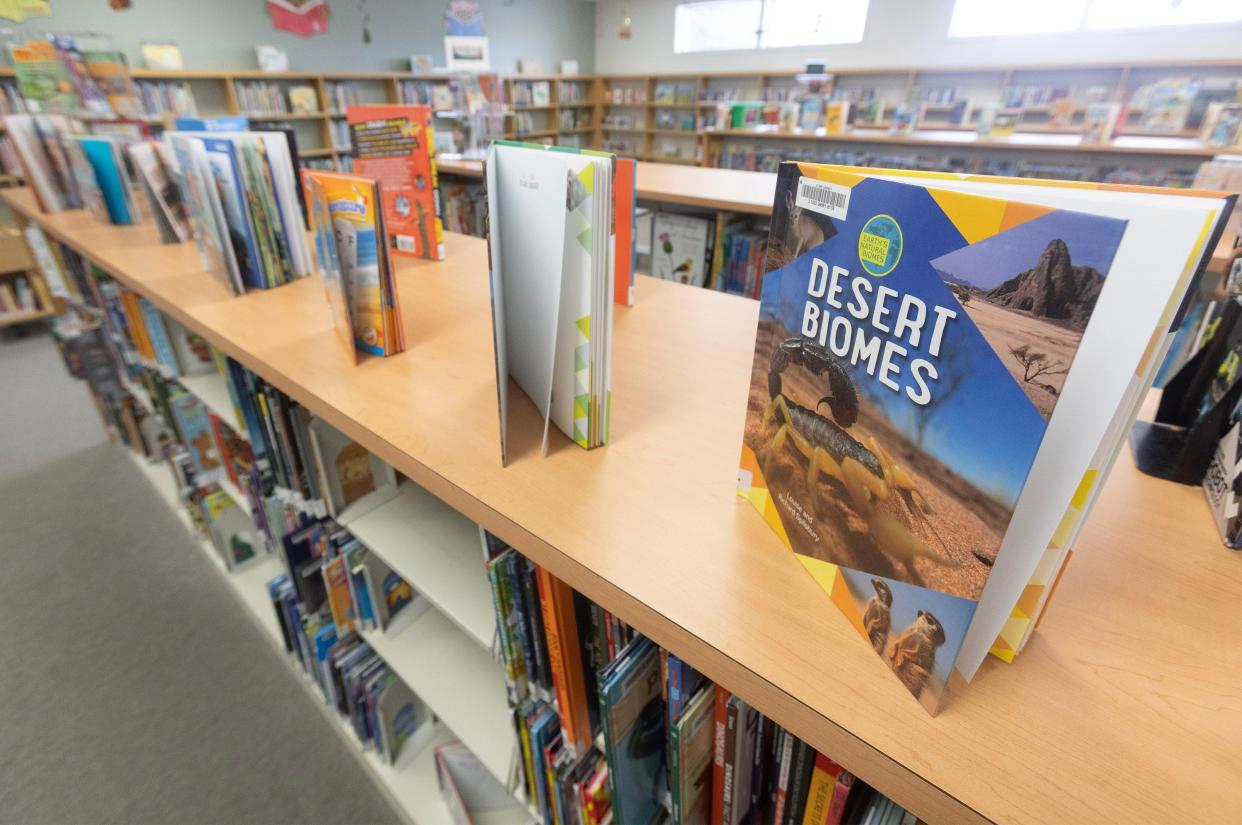New Mississippi law 'is not a book-banning bill,' legislator says

A new law regarding access to digital books in Mississippi has caused some confusion.
Media reports, including an article on the website Book Riot, have claimed digital book providers such as Hoopla and Overdrive are banned for users younger than 18.
But Rep. Lee Yancey, R-Brandon, who co-authored HB 1315, said that is simply not the case.
"This is not a book-burning bill. This is not a book-banning bill," Yancey said Monday in a telephone interview.
It also does not ban vendors of digital books, but forces them to be more vigilant when selecting content, Yancey said. It also penalizes vendors if they fail to correct a problem if it is reported.
The new law, also called, "An act to regulate pornographic media exposure to children in K-12," went into effect July 1.
What the law is intended to do is hold digital book vendors accountable for the material they provide that children may be able to access, Yancey said.
Click here to read the full text of the new law.
The burden is on vendors like Hoopla to make sure digital books and educational materials do not contain content that is harmful to children.
Schools and libraries subscribe to such third-party vendors to offer patrons access to ebooks and other digital media.
"If a customer complains or they notice there is something inappropriate in there, the library notifies the digital content provider," Yancey said. "It's just kind of an incentive for the digital content provider to screen what comes in and not just allow anything to go into K through 12 libraries."
The vendor is put on notice and has 30 days to comply with the new law if inappropriate material is found. If the problem is not resolved in 30 days, the provider must take a 10% reduction in subscriber fees from the library reporting the issue. If the problem persists after another 30 days, the vendor will not receive any money from the library for its services.
"There's no repercussion for the library whatsoever, it's all on the provider of content," Yancey said. "If the issue isn't resolved, then the library gets to use the vendor's content for free."
While the new law does not place responsibility for compliance on the libraries, it does create other obstacles, said Tracy Carr, deputy director of the Mississippi Library Commission.
When inappropriate content is reported, the libraries investigate, but trying to track down the material and the path that was taken to access it can be time-consuming.
In addition, the definition of "inappropriate" isn't as clearcut as some lawmakers believe, Carr said.
"When it comes down to trying to guarantee there is nothing sexually oriented or inappropriate by some definition of inappropriateness — guaranteeing that for an entire community for thousands of ebooks — we don't read all the books, we get a pile of books and we pay for them as they are used," she said.
The law has a list of what is considered inappropriate "to the average person, applying contemporary community standards, taken as a whole, it appeals to the prurient interest, that is, a lustful, erotic, shameful, or morbid interest in nudity, sex or excretion …"
Other parts of the legislation are not so clearcut: "No Internet service provider, or its affiliates or subsidiaries, search engine, or cloud service provider shall be held to have violated the provisions of this act solely for providing services that do not constitute the direct provision of digital or online resources or databases to students in kindergarten through twelfth grade."
Vendors now must try to figure out how to interpret the law as it may pertain to some of the content and how to prevent children from having general access to inappropriate content.
Hoopla officials could not be reached for comment.
Carr said library cardholders who are under 18 already have some limitations. And measures are in place to review books that reportedly contain inappropriate content. And many of the state's library systems have other measures in place to prevent children from accessing mature content.
In addition, all schools and libraries must be compliant with the federal Child Internet Protection Act, which is designed to limit minors' exposure to pornography and explicit content.
"We already have a process in place," Carr said.
In Hoopla, parents can set up Kids Mode for children 12 and younger, which limits access, but it does not have similar restrictions for teens.
The new law also applies to Magnolia, which provides age-appropriate access to online research databases for all Mississippians who use library services. Magnolia us funded by the Mississippi Legislature.
More: Ridgeland, library system reach agreement about funding after book display standoff
Yancey said he doesn't know of any specific cases in which a vendor has allowed children access to digital media with sexual content. He became concerned, however, when a counselor who works with people addicted to pornography told him many of those who are addicted were exposed to sexual content at an early age.
"He asked me, 'Isn't there something we can do to try and limit the exposure of pornography on the internet,'" Yancey said.
Yancey's idea was to set up some sort of age verification method to block minors from entering a porn site and had lawyers in the Legislature help him draft a bill to that effect.
His bill and another in the Senate that focused on digital content providers for libraries went through the legislative process to eventually become what the law is today.
"This is basically requiring the content provider to verify that certain things don't exist in what they are providing to the K-12 library," Yancey said. "Even movies have a rating system."
Do you have a story to share? Contact Lici Beveridge at lbeveridge@gannett.com. Follow her on Twitter @licibev or Facebook at facebook.com/licibeveridge.
This article originally appeared on Mississippi Clarion Ledger: MS law blocks children's access to pornographic ebooks

